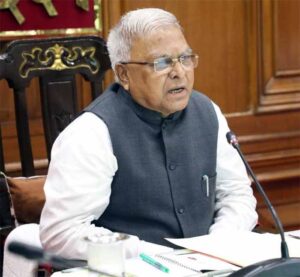
image credit - shutterstock
The Growing Issue of Touch Starvation Among Men
Imagine a life without hugs, a comforting hand on your shoulder, or even a friendly pat on the back. For many men, this is a daily reality, leading to what experts call touch starvation. While often overlooked, touch deprivation is a serious issue, contributing to both mental and physical health challenges. Yet, due to societal expectations, men suffer in silence, unaware that their need for human connection is not just emotional but physical.
Touch starvation doesn’t refer to a lack of sexual intimacy. Rather, it’s the absence of non-sexual, platonic touch, such as a hug, a handshake, or a friendly pat. As humans, we crave connection, and physical touch is a fundamental part of this. Without it, men are left isolated, vulnerable, and often dealing with unspoken stress.
Why Men Are Especially Vulnerable to Touch Deprivation
Men are particularly susceptible to touch starvation due to societal pressures. Cultural norms dictate that men must be tough, independent, and emotionally stoic, leaving little room for expressions of vulnerability. Seeking physical comfort is often seen as weak, which only adds to the problem.
Stereotypes about masculinity discourage men from seeking out the physical contact they need. Fear of being judged or seen as needy makes men reluctant to express their desire for touch. As a result, many men experience prolonged touch deprivation, which further exacerbates feelings of loneliness and isolation.
Society also tends to sexualize touch, especially between men, making simple gestures of affection more complicated. The fear of being perceived as making a sexual advance—or worse, being labeled as gay—adds another barrier, preventing men from enjoying healthy, platonic contact.
Recognizing the Signs of Touch Starvation
Touch starvation can manifest in a variety of ways. The most common signs include a deep longing for physical contact, heightened sensitivity to touch, and even mental health struggles like anxiety and depression. Those who are touch starved may feel a persistent sense of isolation, even in social settings.
Other symptoms include increased stress levels, trouble sleeping, and difficulty forming connections with others. These symptoms can have a snowball effect, making men feel even more detached from society.
The Physical and Mental Health Impact
Touch deprivation doesn’t just affect emotional well-being—it also takes a toll on physical health. Research shows that physical touch can boost the immune system, helping people resist illness. On the flip side, a lack of touch can weaken the body’s defenses, making individuals more prone to sickness.
Mentally, the effects of touch starvation are profound. Without regular human contact, stress hormones like cortisol rise, while the calming hormone oxytocin decreases. This imbalance leads to higher levels of anxiety, depression, and feelings of loneliness. Over time, these emotional struggles can lead to serious mental health issues.
MUST READ : Shocking Study Reveals Hidden Dangers: How Traffic Noise and Pollution May Harm Your Fertility
Affection Starvation: An Overlooked Aspect
Closely related to touch starvation is affection starvation, where individuals feel emotionally disconnected from others, despite being in relationships. This lack of emotional closeness can be just as harmful as the absence of physical touch, creating a vicious cycle of loneliness.
Without affection, individuals struggle to form secure attachments, leading to problems in relationships and a general sense of detachment from loved ones.
Coping Strategies to Combat Touch Starvation
The first step in combating touch starvation is recognizing the need for physical contact. Acknowledging this basic human requirement can help men take active steps toward addressing the issue. Here are some strategies to consider:
- Seek Out Platonic Touch: Hugging a friend, holding hands, or even getting a professional massage can help ease feelings of touch deprivation.
- Spend Time with Pets: Animals can provide comfort through physical contact, offering an alternative source of touch.
- Use Weighted Blankets: These can simulate the feeling of being held, offering a sense of security and relaxation.
- Professional Cuddling Services: In some cases, professional cuddlers provide a safe and non-judgmental space for those seeking platonic physical touch.
Breaking the Stigma: Creating Safe Spaces for Men
To address this crisis, it’s essential to challenge societal norms that prevent men from expressing their need for touch. Encouraging open discussions about the importance of physical contact can break down barriers, allowing men to seek out the connection they need.
Creating environments where men feel safe to express their feelings and seek physical comfort without fear of judgment is vital. Understanding the difference between platonic and sexual touch can also help normalize healthy, non-sexual contact among men.
Seeking Professional Help
In severe cases, touch deprivation can require professional intervention. Therapists and counselors can help individuals process their feelings and provide tools to cope with touch starvation. For those craving physical contact, services like professional cuddling offer a structured, safe environment.
If you or someone you know is struggling with touch starvation, don’t hesitate to seek help. Addressing the issue head-on can dramatically improve both mental and physical health.
Conclusion: Addressing the Silent Crisis
Touch starvation among men is an unspoken crisis that deserves attention. By acknowledging the issue, breaking down societal barriers, and encouraging men to seek the physical contact they need, we can work towards a healthier, more connected world.
Physical touch is not a luxury; it’s a necessity. Let’s make sure no one has to suffer in silence from being touch starved.







